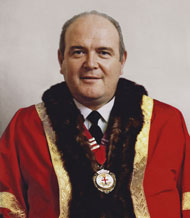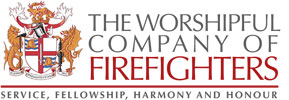Our History
 |
|
Gerald Clarkson
Father of the Company |
The Livery Companies of the City of London can trace unbroken descent from Medieval Trade Guilds. The term "Guild" is said to derive from the Saxon word 'gild', a payment, since members paid towards the cost of fellowship.
Guilds were craft or trade societies. They protected consumers and employers against incompetence or fraud by training sufficient apprentices to provide an adequate supply of skilled craftsmen selling goods of true quality and weight. They helped workers by preventing unlimited competition and ensuring reasonable wages and conditions. They searched out inferior work and punished the offenders. They settled trade and domestic disputes by arbitration, while their Halls served as centres for meeting and recreation.
Members paid contributions as to a benefit society, and then received relief when ill, infirm or old, and had their burial expenses paid. There was a strong religious element in the Guilds, each adopting a patron Saint and being attached to a local monastery or church. The wearing of a livery arose from a practice of wearing a distinctive form of dress on solemn or festive occasions and spread from that.
The Guild of Firefighters was formed by our Father of the Company, Gerald Clarkson, in 1988 and was recognised by the City on the 13 June 1988 as it started its journey towards Company and ultimately full Livery status. On the 13 June 1995 the Guild fulfilled the first stage and was granted the status of a City Company without Livery. On the 23 October 2001 the City of London granted the Company Livery Status, when it became known as the Worshipful Company of Firefighters.
The granting of Livery is afforded by the Court of Aldermen of the City of London only after a rigorous process of enquiry, necessary to establish the Company's credentials and ensure sufficient funds are maintained in a Charity Account to satisfy minimum financial criteria, that the Company has existed long enough to establish its permanent nature and that its interests do not conflict with those of existing Companies.
